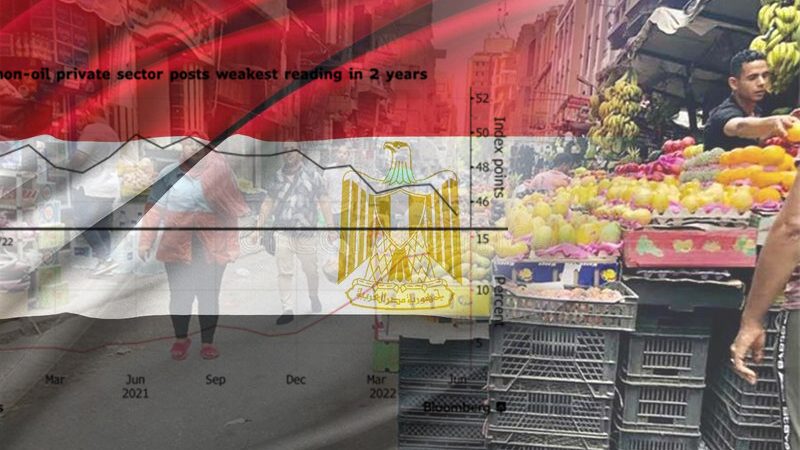Inflation Sends Egypt Private Sector Into Worst Slump Since 2020


The businesses reportedly struggled to secure the necessary supplies of raw materials. According to a survey published by the American credit rating agency Standard and Poor’s (S&P) Global on Wednesday, input costs soared at the fastest pace for almost four years, prompting companies to raise their selling prices the most since February 2017.
According to Bloomberg, Egypt’s Purchasing Managers’ Index (PMI) dropped to 45.2 in June from 47 in May, the lowest since June 2020. The inflation driven by war sent the non-oil private sector into the worst slump since 2020 as demand slumped after a sharp spike in prices of the basic commodities.
Related Posts
Two of the largest components of the PMI: the output and new orders indices, declined in June to their lowest levels. Reportedly, Egyptian companies suffered from a sharp downturn in new business last month. According to S&P, staff wages also rose at the fastest pace for almost eight months because companies compensated workers facing a higher cost of living. The devaluation of the pound also led to higher import fees. The Central Bank of Egypt (CBE) took this decision in May.
According to the government data, 35 per cent of Egypt’s inflation rate was related to external factors. The inflation was mostly driven by supply constraints, geopolitics, the Russia-Ukraine war and transport costs.
Inflation in Egypt
Inflation in Egypt reached 12.1 per cent in March 2022. The food and beverage prices hiked by 4.5 per cent in March. The price of fuel, electricity, food items, housing, medical services and entertainment increased rapidly in recent months.
Egypt is also facing pressure from the surge in wheat prices in the global market. The hike has brutally affected the lower-income earners in the country.








